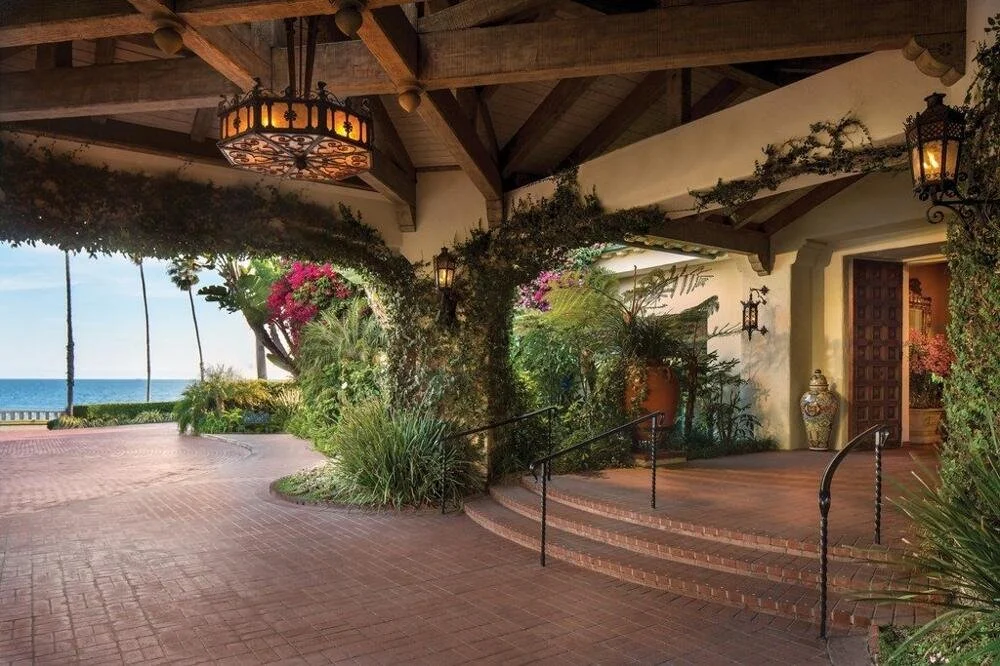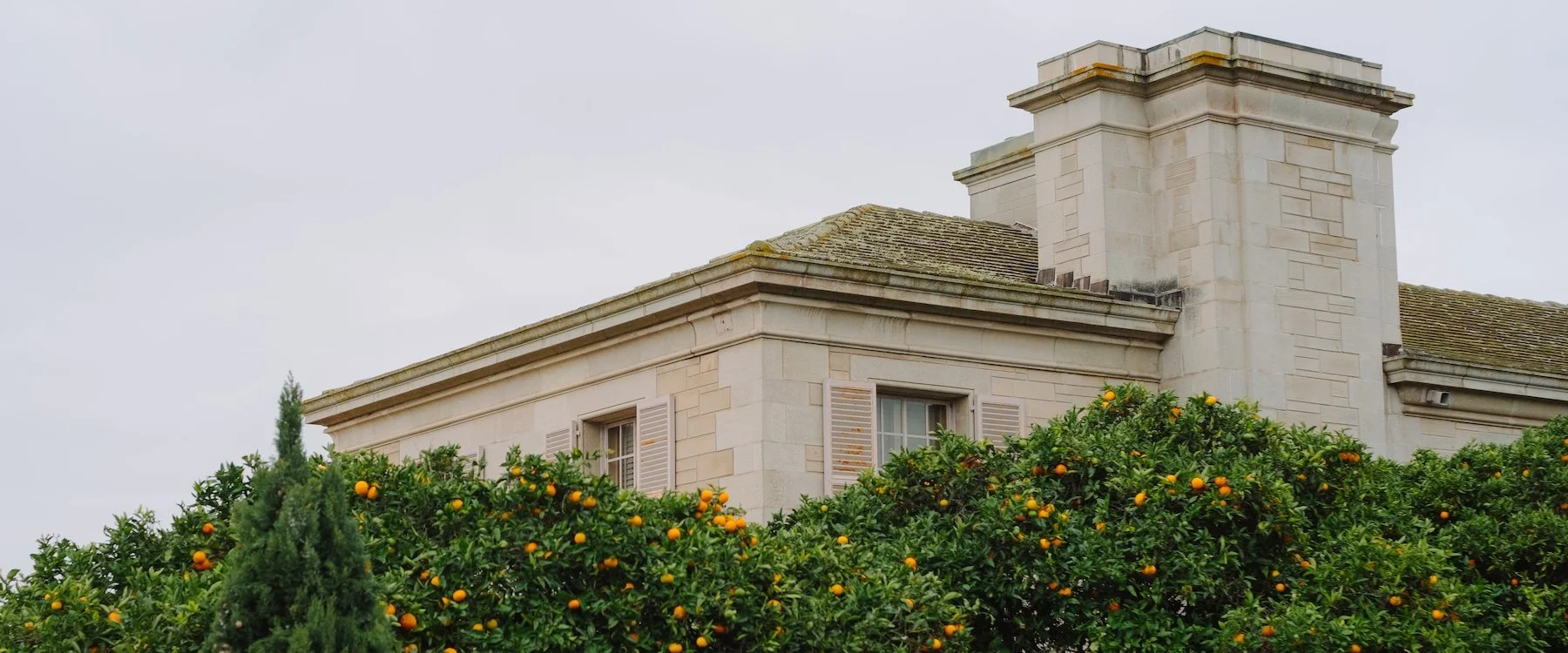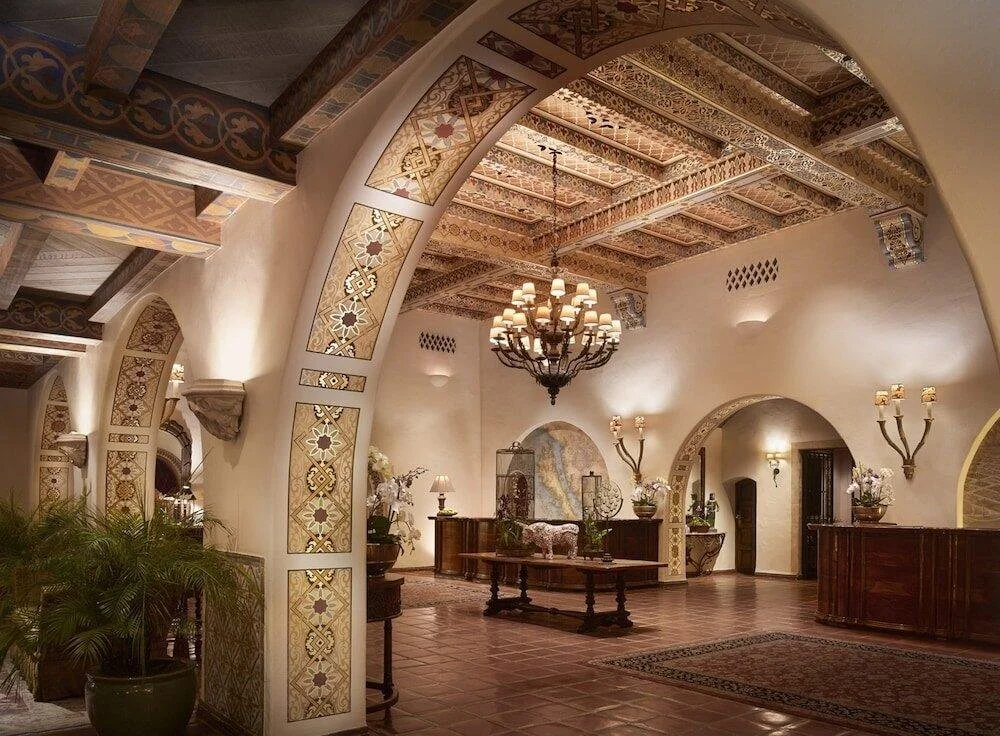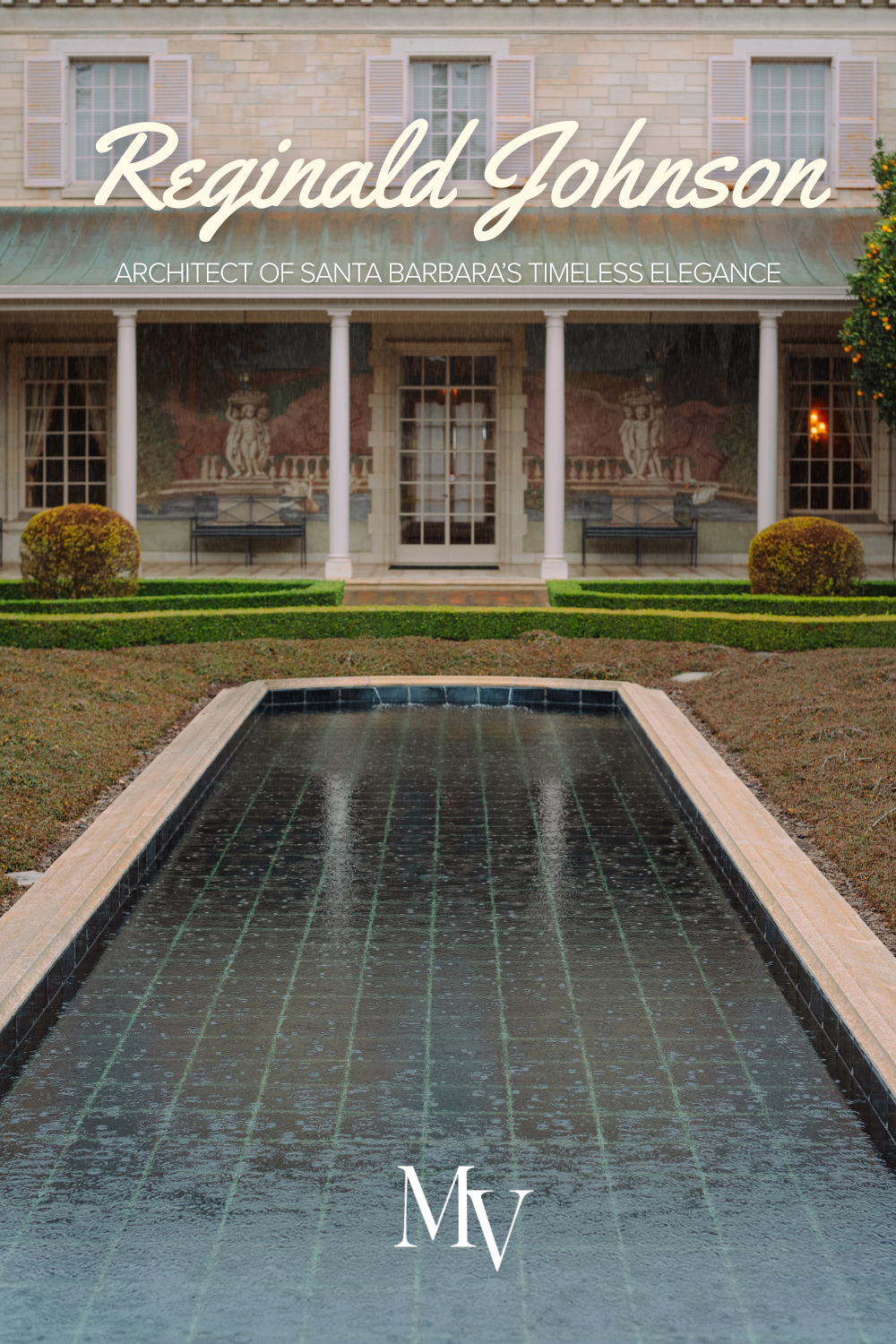Reginald Johnson: The Architect Who Shaped Santa Barbara’s Refined Elegance
The entrance to the Four Seasons Biltmore before it closed its doors for renovation in 2020.
There are few architects whose work feels as seamlessly woven into the identity of Santa Barbara and Montecito as Pasadena architect, Reginald Davis Johnson. One of the leaders of the Golden Era of Santa Barbara architecture, his homes don’t shout; they whisper. They’re serene, proportioned, calm — the kind of architecture that becomes more beautiful with time.
From hillside estates to civic landmarks, Johnson helped shape the region’s most refined, enduring style. He interpreted the Mediterranean climate with nuance, designing homes meant to breathe, capture light, and invite a slower, gracious way of living.
Today, nearly a century later, Reginald Johnson’s influence still defines some of Santa Barbara’s most coveted neighborhoods and most beloved architectural landmarks.
Early Life & Architectural Formation
Born in 1882 in New York City, Johnson studied at MIT before moving west, where he quickly became one of California’s leading residential architects of the early 20th century.
Where many architects of the era focused on ornament, Johnson focused on:
Proportion and balance
Timeless materials
Careful massing and symmetry
Light-filled, human-scaled interiors
A deep connection to the garden and landscape
His work blended European influences with Santa Barbara’s natural beauty, shaping a regional design language that would become synonymous with the Central Coast.
Master of Mediterranean & Spanish Colonial Revival
Though he designed in multiple styles, Johnson is best known for his elegant interpretations of the Spanish Colonial Revival and broader Mediterranean Revival traditions.
His architecture is defined by:
Smooth, whitewashed stucco
Terracotta rooflines
Timbered ceilings
Loggias framing ocean and mountain views
Quiet, understated grandeur
He was a contemporary of George Washington Smith — and while Smith often leaned into Andalusian influences, Johnson refined the Mediterranean vocabulary into something softer, more symmetrical, and more restrained.
Iconic Works in Santa Barbara & Montecito
Reginald Johnson’s architectural footprint is expansive, but several standout projects define his legacy on the Central Coast:
1. The Biltmore Hotel (now Four Seasons Resort The Biltmore Santa Barbara)
A masterpiece of resort architecture, the Biltmore is one of Johnson’s most celebrated projects — a perfect balance of coastal romance, Spanish influence, and garden-integrated living.
2. Bellosguardo (1933)
Perched above East Beach with commanding views of the coastline, Bellosguardo is one of the grandest estates in California. Originally designed for the Clark family, the home remains a pristine example of Johnson’s restrained blend of Beaux-Arts and Mediterranean styles.
3. Santa Barbara Post Office (1937)
A civic landmark characterized by massive arches, a dramatic central hall, and a quiet majesty. It remains one of downtown’s most beautiful public buildings.
4. El Encanto (early structures)
Johnson contributed to early designs on the historic hillside hotel, helping establish the resort’s atmospheric blend of gardens, cottages, and classical Mediterranean touches.
5. Various Montecito and Santa Barbara Estates
Many of Johnson’s most important works are tucked into Montecito lanes and hedgerow streets — symmetrical, serene, beautifully proportioned homes that remain some of the most desirable properties in the region. Possibly his most noted remaining private residence is Rancho San Carlos in Montecito.
These homes are prized not just for their architecture, but for how effortlessly they support the California lifestyle: rooms that breathe, doors that open to gardens, light that shifts from morning to evening in considered ways.
A Philosophy Rooted in Livability
What set Reginald Johnson apart wasn’t just talent — it was an understanding of how people actually live. He designed homes around this understanding, long before “indoor–outdoor living” became a buzzword.
His interiors often feature:
Garden-facing living rooms
South-facing courtyards
Thoughtful circulation patterns
Plaster, timber, and natural materials
Rooms that feel intimate, never imposing
This livability is part of why Johnson-designed homes remain so sought after in today’s real estate market. They feel restorative — built for rhythm, grace, and ease.
The interior of the Four Seasons Biltmore before it closed its doors in 2020. It’s set to reopen in 2026.
Legacy on the Central Coast
Johnson passed away in 1952, but his work endures as part of Santa Barbara’s architectural DNA.
He helped define:
The post-earthquake architectural identity of Santa Barbara
The movement toward cohesive Mediterranean design
A standard of craftsmanship and elegance that still shapes local zoning and design boards
His homes are more than historic artifacts — they remain templates for what thoughtful, climate-responsive, timeless California design looks like.
Let’s Find a Home with Architectural Storytelling
If you’re drawn to Reginald Johnson’s serene elegance — the symmetry, the light, the quiet sophistication — there are still homes across Santa Barbara and Montecito that carry his influence or bear his name.
Johnson-designed properties are rare, but homes inspired by his principles are woven throughout the region’s most beloved neighborhoods: the Upper East, the Riviera, and Montecito’s coastal enclaves.
If you’re searching for a home with architectural heritage and enduring beauty, we’d love to guide you.
Explore Santa Barbara and Montecito properties that reflect the artistry of Johnson and his contemporaries — or connect with us directly to begin a curated architectural home search.
Follow @montecitovalley for local history, design inspiration, and iconic properties across the Central Coast.




